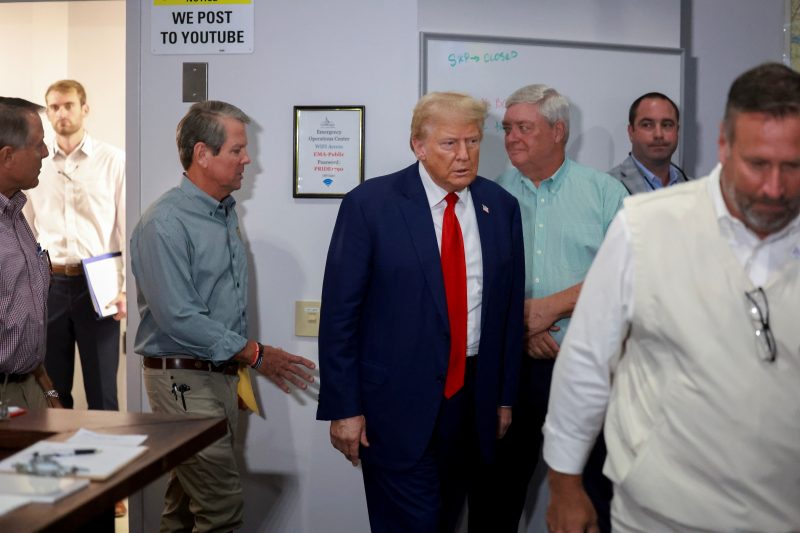In the wake of natural disasters, the dissemination of accurate and timely information is crucial for effective response and recovery efforts. However, the spread of misinformation can significantly impact the outcomes of such situations. Former President Donald Trump has long been accused of peddling misinformation in natural disaster responses, adding complexity to an already challenging situation.
One notable instance was during Hurricane Maria in 2017, which devastated Puerto Rico. Trump’s statements downplaying the severity of the disaster and falsely claiming that the federal response was flawless drew criticism from many quarters. This misinformation not only misled the public but also hindered the allocation of resources and support to the affected areas.
Similarly, during the wildfires that ravaged California in recent years, Trump made unsubstantiated claims about the causes of the fires and the efficacy of forest management practices. These remarks, which contradicted established scientific consensus, undermined efforts to address the root causes of the wildfires and implement measures to prevent future occurrences.
Moreover, the COVID-19 pandemic highlighted Trump’s penchant for spreading misinformation, which extended to natural disaster responses during the crisis. His remarks suggesting unproven treatments or downplaying the severity of the pandemic further eroded public trust in official channels of information and impeded effective communication strategies for disaster management.
The implications of misinformation in natural disaster responses are far-reaching and can exacerbate the impact of the event on affected communities. Inaccurate information can lead to confusion, delays in response efforts, and misallocation of resources, ultimately prolonging the recovery process and increasing the vulnerability of those in need.
Moving forward, it is essential for leaders and authorities to prioritize transparency, accountability, and accuracy in their communication during natural disasters. Establishing reliable channels of information, engaging with experts and stakeholders, and fact-checking statements are critical steps to prevent the spread of misinformation and ensure a coordinated and effective response to disasters.
In conclusion, the spread of misinformation in natural disaster responses, as exemplified by former President Trump, underscores the importance of vigilant and responsible communication practices in times of crisis. By prioritizing accuracy, veracity, and empathy in their messaging, leaders can foster trust, facilitate cooperation, and mitigate the adverse impacts of natural disasters on communities in need.

